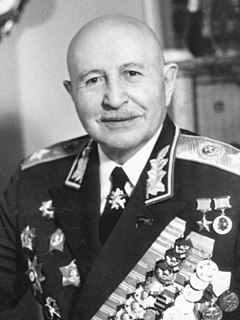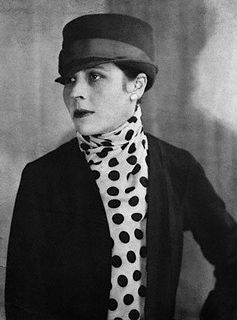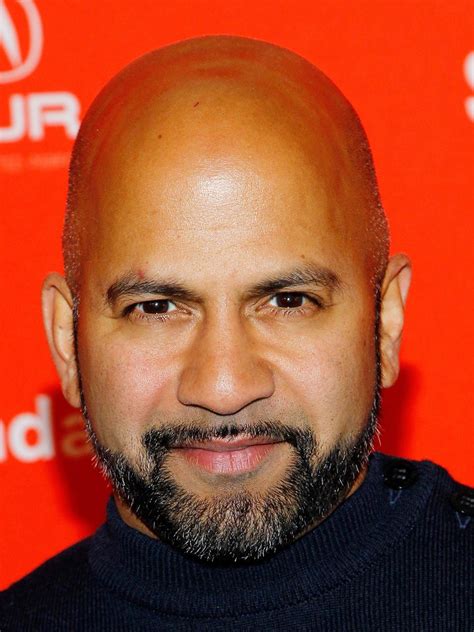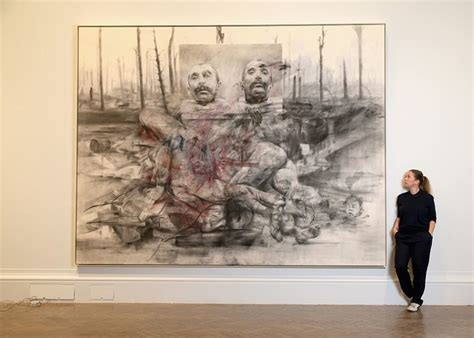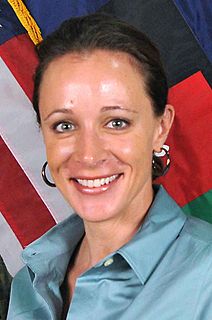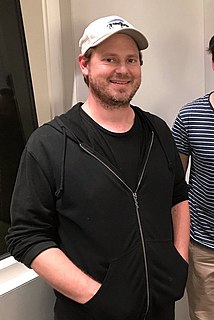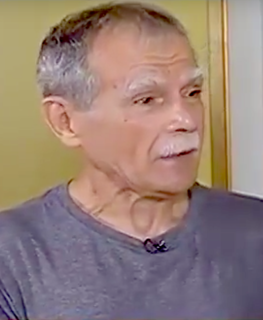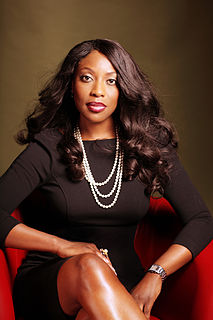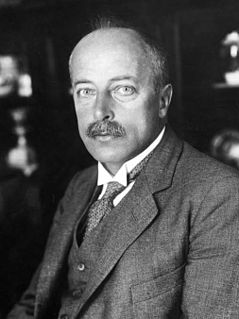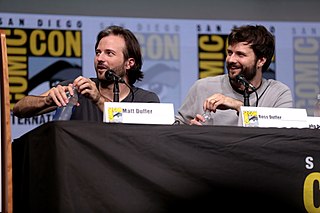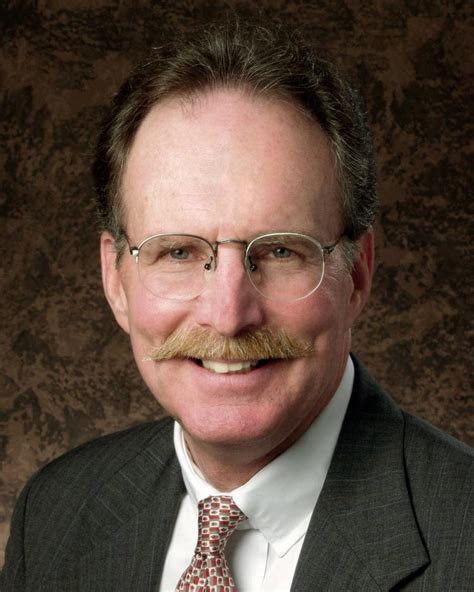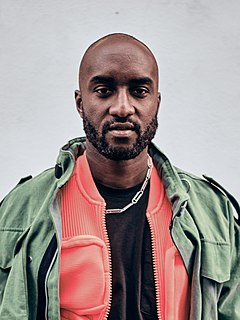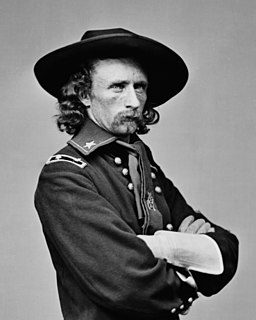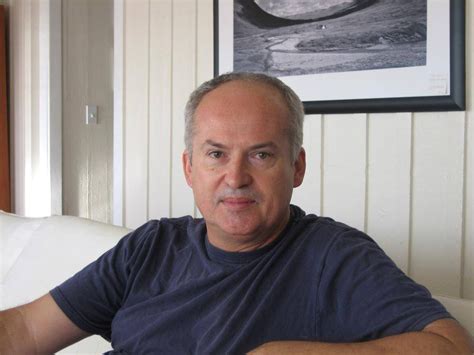Top 1200 Narrative Structure Quotes & Sayings - Page 6
Explore popular Narrative Structure quotes.
Last updated on December 23, 2024.
There are lots of cases where we know more about how the world works than we do about how we know how it works. That's no paradox. Understanding the structure of galaxies is one thing, understanding how we understand the structure of galaxies is quite another. There isn't the slightest reason why the first should wait on the second and, in point of historical fact, it didn't. This bears a lot of emphasis; it turns up in philosophy practically everywhere you look.
In the Sixties, there was a big resistance to the Vietnam War. People began reinterpreting all American history as a series of misadventures and crimes and oppressions visited upon the innocent, the poor, the defenseless, the minorities, and so on. This created a new narrative in America. Let's call it, "America the inexcusable." And this narrative has been drummed into the minds of our young people. A whole generation of Americans has been taught that theirs is a bad country. And it's then very difficult for them to figure out how one can one be a good citizen in a bad country.
It was one time when people thought the value of the fine structure constant was important. Now of course it's still important, of course, as a practical matter,but we now know that the value it has is a function, that in any fundamental theory you derive the fine structure constant as a function of all sorts of mass ratios and so on and it's not really that fundamental.
As words are not the things we speak about, and structure is the only link between them, structure becomes the only content of knowledge. If we gamble on verbal structures that have no observable empirical structures, such gambling can never give us any structural information about the world. Therefore such verbal structures are structurally obsolete, and if we believe in them, they induce delusions or other semantic disturbances.
We have won on the Arlov, Kursk, Belgorod, and Kharkov grounds. We won because the country was being defended not only by the army but by the entire Soviet people. The Socialist economy, Soviet political structure, and Marxist-Leninist ideology proved their unarguable excellence against the Fascist economy, Fascist political structure, and Fascist ideology of Germany.
Darwin's principle of natural selection leads to the prediction that the proper way to analyze any evolutionary development is to see the new features as adaptive to environments. And that's a perfectly good principle. The problem is that there are many evolutionary biologists who view everything that happens in evolution as directly evolved for adaptive benefit. And that just doesn't work. Whenever you build a structure for adaptive reasons, the structure is going to exhibit properties that have nothing to do with adaptation. They're just side consequences.
If the structure that serves as a template (the gene or virus molecule) consists of, say, two parts, which are themselves complementary In structure, then each of these parts can serve as the mould for the production of a replica of the other part, and the complex of two complementary parts thus can serve as the mould for the production of duplicates of itself.
We don't really know how technology will affect narrative. That's the question. See, people used to say that the novel is going to die, but they would never say that movies will die with it, when in fact all forms depend on the narrative. I think if one of them fails, the others are going to fail as well. Maybe this will happen to both forms, and maybe movies will take a totally different direction with fiction.
Say you have a headline like "Mountain Bike Stolen," and then you read the story, read another story about it the next day, and then the next week, and then the next year. News is a process of expansion, the filling in of detail, and making narrative connections - not based on chronology, but based on features of the story. There are narrative connections made between props, between characters, between situations, and so forth.
I do think the challenge, in a way for me, is to write a narrative film and when you finish watching it you feel like it's a collage. You tell the narrative, you tell the story, but you feel like you've created this tapestry. But it also has a shape, a story. So I think there's a middle ground that I try to strike... away from where everyone else seems ready to go, which is, setup, payoff. You know, He's afraid of water, oh, and at the end he's swimming in water - oh, my God. I hate that stuff.
The first attempts to consider the behavior of so-called "random neural nets" in a systematic way have led to a series of problems concerned with relations between the "structure" and the "function" of such nets. The "structure" of a random net is not a clearly defined topological manifold such as could be used to describe a circuit with explicitly given connections. In a random neural net, one does not speak of "this" neuron synapsing on "that" one, but rather in terms of tendencies and probabilities associated with points or regions in the net.
I want people to think about movies and how we watch them. Let them know it's okay to question the structure or how we're sometimes duped into a false sense of normalcy. Most of all, I want people to question the old standard practices of, 'This is how the structure of something should work,' or, 'This is how a character must behave.'
The overwhelming majority of Puerto Rico is completely, completely alienated from the political structure. Colonialism is really, really strong and alive in Puerto Rico. And the politicians have taken full advantage of that. We have a debt of $74 billion, caused primarily by the system and the political structure that exists in Puerto Rico.
A work based only on a line concept is scarcely more than a illustration; it fails to achieve pictorial structure. Pictorial structure is based on a plane concept. The line originates in the meeting of two planes ... we can lose ourselves in a multitude of lines, if through them we lose our senses for the planes.
If our local, observable universe is embedded in a larger structure, a multiverse, then there's other places in this larger structure that have denizens in them that call their local environs the universe. And conditions in those other places could be very different. Or they could be pretty similar to what we have here.
In order for my live performance to work, which is about generating a focused energy for about an hour and a half, it is necessary for me to listen and take in someone else's focused energy the day of or the day before the live show. That can transpire through a conversation, or inspiration can occur by looking through any type of visual book which sparks a narrative. That narrative then becomes today's seed and can then take root in music terms, where a sonic tree begins to grow.
The strange thing about the apocalypse is that it's uneven. For some people, it goes one way and for others another way, so that there's always this shifting relation to the narrative of the disaster. Sometimes apocalypses are just structural fictions, and sometimes they're real. Sometimes a narrative requires an end - the fact that the beginning was always leading somewhere becomes clear at the end. There's an idea that we're always in the middle, but we posit this apocalyptic end in order to also be able to project into the past or the beginning. I think that's true and false.
If you're a certain type of actor, then eventually stepping into a director's shoes is a natural transition. I've always been the actor who's very focused on the narrative, where my character is in the story, and how I can benefit the story. I've always had a technical aspect of what the lens is, how the camera is going to move, how I can feed the information the director applies within that move. If you're that type of actor, narrative-based, technically proficient, the next step is actually not that far.
The vision shared by both [French utopian] Charles Fourier and Robert Owen was for an entire town to fit into one structure. Owen's design for what he called a "parallelogram" was essentially to have a whole city in one building, laid out around a huge quadrangle. Fourier's scheme was to build a massive Versailles-like structure that he called a "phalanstery." In both cases they had these architectural dreams that we now recognize as pretty unappealing.
For 40 years, my argument has been that democratizing ownership of wealth has been the key to egalitarian society and the goals of egalitarian society. But you start at the local level, both at the workplace, community and other institutions and you reconstruct the egalitarian democratized structure as well as participatory structure. And as this happens, we learn more how to move toward the vision that is much larger than just the community level.
The world of shapes, lines, curves, and solids is as varied as the world of numbers, and it is only our long-satisfied possession of Euclidean geometry that offers us the impression, or the illusion, that it has, that world, already been encompassed in a manageable intellectual structure. The lineaments of that structure are well known: as in the rest of life, something is given and something is gotten; but the logic behind those lineaments is apt to pass unnoticed, and it is the logic that controls the system.
With crystals we are in a situation similar to an attempt to investigate an optical grating merely from the spectra it produces... But a knowledge of the positions and intensities of the spectra does not suffice for the determination of the structure. The phases with which the diffracted waves vibrate relative to one another enter in an essential way. To determine a crystal structure on the atomic scale, one must know the phase differences between the different interference spots on the photographic plate, and this task may certainly prove to be rather difficult.
Science does not rest upon solid bedrock. The bold structure of its theories rises, as it were, above a swamp. It is like a building erected on piles. The piles are driven down from above into the swamp, but not down to any natural or 'given' base; and if we stop driving the piles deeper, it is not because we have reached firm ground. We simply stop when we are satisfied that the piles are firm enough to carry the structure, at least for the time being.
Some people's lives seem to flow in a narrative; mine had many stops and starts. That's what trauma does. It interrupts the plot. You can't process it because it doesn't fit with what came before or what comes afterward. A friend of mine, a soldier, put it this way. In most of our lives, most of the time, you have a sense of what is to come. There is a steady narrative, a feeling of "lights, camera, action" when big events are imminent. But trauma isn't like that. It just happens, and then life goes on. No one prepares you for it.
From the point of view of logic, my report on 'Exclusion principle and quantum mechanics' has no conclusion. I believe that it will only be possible to write the conclusion if a theory will be established which will determine the value of the fine structure constant and will thus explain the atomistic structure of electricity, which is such an essential quality of all atomic sources of electric fields actually occurring in nature.
It [knowledge] is clearly related to information, which we can now measure; and an economist especially is tempted to regard knowledge as a kind of capital structure, corresponding to information as an income flow. Knowledge, that is to say, is some kind of improbable structure or stock made up essentially of patterns - that is, improbable arrangements, and the more improbable the arrangements, we might suppose, the more knowledge there is.
Suits obviously had helped to promote bad government and he was as guilty as anyone for wearing them so steadfastly for twenty years. Of late he had become frightened of the government for the first time in his life, the way the structure of democracy had begun debasing people rather than enlivening them in their mutual concern. The structure was no longer concerned with the purpose for which it was designed, and a small part of the cause, Nordstrom thought, was probably that all politicians and bureaucrats wore suits.
I do think that women could make politics irrelevant; by a kind of spontaneous cooperative action the like of which we have never seen; which is so far from people’s ideas of state structure or viable social structure that it seems to them like total anarchy — when what it really is, is very subtle forms of interrelation that do not follow some heirarchal pattern which is fundamentally patriarchal. The opposite to patriarchy is not matriarchy but fraternity, yet I think it’s women who are going to have to break this spiral of power and find the trick of cooperation.
I've been making films with almost no dialogue (laughs), so sound and music become a very powerful character to tell the story. It's almost like with sound and music and images, it's your tool to tell the story, especially when I decide to structure the film in a way that usually goes against the conventions of the three-act structure which most films are made out of.
Writers imagine that they cull stories from the world. I'm beginning to believe that vanity makes them think so. That it's actually the other way around. Stories cull writers from the world. Stories reveal themselves to us. The public narrative, the private narrative - they colonize us. They commission us. They insist on being told. Fiction and nonfiction are only different techniques of story telling. For reasons that I don't fully understand, fiction dances out of me, and nonfiction is wrenched out by the aching, broken world I wake up to every morning.
Narrative should flow as flows the brook down through the hills and the leafy woodlands...a brook that never goes straight for a minute, but goes and goes briskly, sometimes ungrammatically, and sometimes fetching a horseshoe of ¾ of a mile around and at the end of the circuit flowing within a yard of the path that it traversed an hour before; but always going and always following at least one law, always loyal to that law, the law of narrative, which has no law. Nothing to do but make the trip; the how of it is not important, so that the trip is made.
Even before the economic crisis in Greece there was no structure for making films - no proper industry, and the structure didn't help filmmakers at all. So filmmakers had to help each other, and make very, very low-budget films. Now with the crisis, things got a bit worse, but filmmakers are still going to be making films. It didn't change that much.
Living in Montgomery, I've been antagonized by the emergence of a narrative about our history that I believe is quite false and misleading, and actually dangerous. And the narrative that emerges when you spend time in the South - places likes Alabama, Georgia, Mississippi, Louisiana - is that we have always been a noble, wonderful, glorious region of the country, with wonderful, noble, glorious people doing wonderful, noble, glorious things. And there's great pride in the Alabamians of the nineteenth century.
In Globetrotter, David Albahari explores the consciousness of emigres from the former Yugoslavia, Croatia and Serbia, showing that while abroad, many of us are even more intensely preoccupied with our histories than we were while living in Yugoslavia. His narrative structured out of realistic details and perceptions with self-conscious meditation blending history, civilization and its discontents, and personal experience reaches a density and intensity akin to Krasznahorkai's and Thomas Bernhard's. An intensely idiosyncratic narrative, enjoyable and thoughtful.
I am convinced that an electronic machine, no matter how smart and intelligent, being still a mere spatial structure in concept, can neither innovate nor even understand the self-evident proposition: 'No spatial structure can be a representation of any feeling'. Such innovation can only be a work of a non-spatial mind, like a human being, and only such innovation, it should be acknowledged, can pave the way for further scientific achievements.





